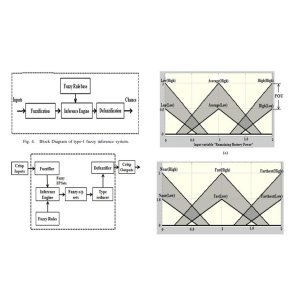SIP Server Cluster Load Balancer Optimization
Problem Definition
PROBLEM DESCRIPTION:
The use of Session Initiation Protocol (SIP) server clusters is becoming increasingly common in telecommunication systems to handle a large volume of request traffic efficiently. However, the performance of these clusters can be significantly impacted by uneven distribution of requests among servers, leading to suboptimal response times and reduced throughput.
Traditional load-balancing techniques may not be well-suited to handle the specific requirements of SIP server clusters, such as differentiating between transaction types and dynamically estimating server loads. This can result in inefficient resource utilization and scalability issues as the cluster size increases.
Thus, there is a need for a specialized load-balancing solution tailored for SIP server clusters that can effectively distribute requests based on factors like transaction type, server load, and call length variability.
By implementing and evaluating a novel load balancer utilizing the Transaction Least Work-Left (TLWL) algorithm, the system can achieve improved response times and throughput, enhancing the overall performance of the cluster.
Furthermore, a comprehensive analysis comparing the scalability of the proposed technique with conventional load-balancing algorithms on a cluster of at least 10 nodes can provide valuable insights into the efficiency and effectiveness of the new approach. This research can lead to the development of innovative algorithms that address the specific challenges of SIP server clusters, ultimately optimizing system performance and reliability.
Proposed Work
The proposed work focuses on the design, implementation, and performance evaluation of a load balancer for SIP server clusters. The project utilizes novel load-balancing algorithms to distribute SIP requests to a cluster of SIP servers with the aim of improving response time and throughput. The system will be designed using a cluster of Intel x86 machines running Linux, allowing for scalability testing with at least 10 nodes. A key algorithm to be utilized is the Transaction Least Work-Left (TLWL), which combines various features such as knowledge of the SIP protocol, dynamic estimates of server load, and call length variability. By developing a new algorithm based on TLWL, it is expected to reduce response times and enhance system performance significantly.
This project falls under the categories of JAVA Based Projects and Networking, specifically in the subcategory of JAVA Based Projects. The software used for this project includes Linux operating system.
Application Area for Industry
This project focusing on improving the performance of SIP server clusters through specialized load-balancing techniques can be applied in various industrial sectors, particularly in the telecommunications industry. Telecommunication companies often face the challenge of efficiently handling a large volume of request traffic while maintaining optimal response times and throughput. By implementing the proposed load balancer utilizing the Transaction Least Work-Left (TLWL) algorithm, these companies can address the specific requirements of SIP server clusters and improve resource utilization and scalability. The benefits of implementing this solution include enhanced system performance, reduced response times, and increased reliability, ultimately leading to improved customer satisfaction and operational efficiency within the telecommunications sector. Additionally, the insights gained from the comprehensive analysis comparing the scalability of the proposed technique with conventional load-balancing algorithms can inform the development of innovative algorithms that address the specific challenges faced by SIP server clusters in other industrial domains, such as cloud computing and e-commerce platforms.
Application Area for Academics
The proposed project on designing and implementing a specialized load balancer for Session Initiation Protocol (SIP) server clusters has immense potential for research by MTech and PHD students in the field of networking and JAVA Based Projects. The project addresses the critical issue of uneven request distribution and suboptimal response times in SIP server clusters, providing a solution through the implementation of the Transaction Least Work-Left (TLWL) algorithm. This research offers an innovative approach to load balancing that can significantly improve system performance and scalability. MTech students and PHD scholars can utilize the code and literature of this project for their dissertations, theses, or research papers, exploring new methods of load balancing, simulations, and data analysis in telecommunication systems. By conducting comprehensive evaluations of the proposed technique on a cluster of at least 10 nodes, researchers can gain valuable insights into the efficiency and effectiveness of the new approach in optimizing system performance.
The future scope of this project involves further refining the TLWL algorithm and extending its applications to other networking domains, paving the way for future research endeavors in improving the reliability and performance of SIP server clusters. This project offers a unique opportunity for students and researchers to contribute to the advancement of networking technologies and develop cutting-edge solutions for real-world telecommunication challenges.
Keywords
load balancing, SIP server clusters, response times, throughput, transaction type, server load, call length variability, TLWL algorithm, scalability, Intel x86, Linux, JAVA Based Projects, Networking, JAVA, Netbeans, Eclipse, J2SE, J2EE, ORACLE, JDBC, Swings, JSP, Servlets, system performance, reliability, innovative algorithms, cluster size, resource utilization, efficiency, effectiveness, scalability testing, cluster nodes
| Shipping Cost |
|
No reviews found!





















































No comments found for this product. Be the first to comment!